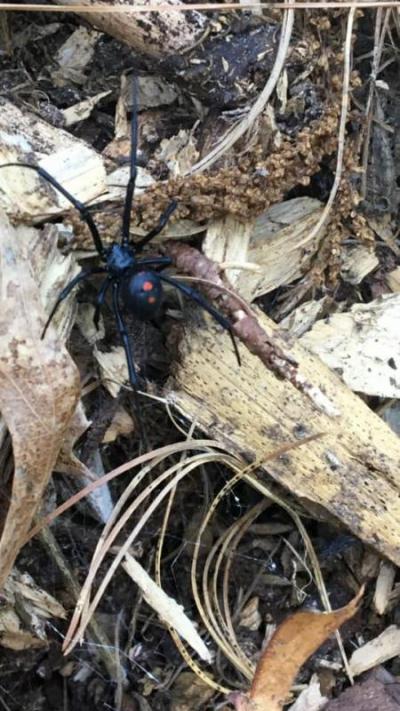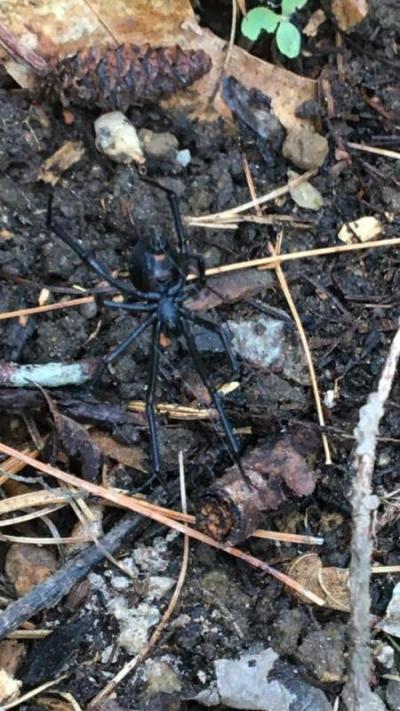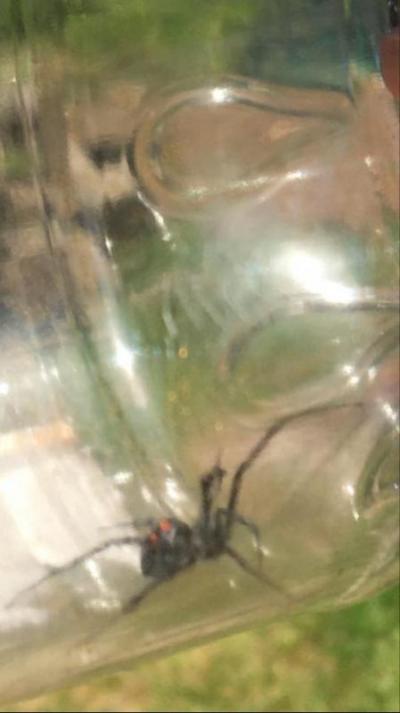The itsy bitsy Black Widow: Spider found in Dartmouth
Dartmouth residents may want to take extra care outdoors after one homeowner found a Northern Black Widow spider in his yard in June.
William, who prefers not to publish his surname, was watering some castor beans in the front of his yard on Old Fall River Road when the spider came out of a hole in the mulch pile, his wife Melissa said.
Melissa posted a public service announcement to a Facebook group to warn others that the venomous spiders can be found in the area.
“That was the first time we noticed one in the yard,” she wrote in a message. “We did not call anybody. After we posted it we did end up relocating it to my father in law’s property a few houses down the road from us because he has a lot of land.”
According to Melissa, William and his father managed to put the spider in a jar to relocate it. He told her it was about an inch long, or slightly larger.
“I was at work (thank goodness),” she wrote, adding “We have not seen another one.”
Northern Black Widows can be found along the east coast from Florida to southern Canada.
They have a distinctive broken or split red hourglass shape on their underside, and red spots along the back.
Although their venom is said to be 15 times stronger than a rattlesnake’s, a bite from a Black Widow is rarely fatal to humans — although it can be deadly for small children, the elderly, or those with underlying conditions.
The spiders are not typically aggressive to humans unless directly threatened. If bitten, symptoms can include muscle pain, nausea, and difficulty breathing.
“I did dig up where it was and did not see any eggs or another spider,” said Melissa. “We do hope not to see another Black Widow again.”
















